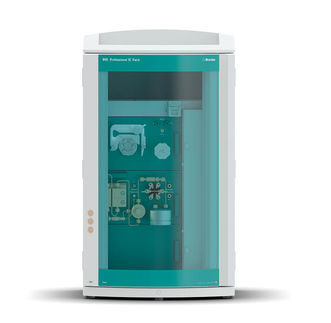The Doors of Perception
The Doors of Perception
|
| Author
| Aldous Huxley
|
| Country
| United Kingdom
|
| Language
| English
|
| Subject(s)
| Philosophy
|
| Genre(s)
| Non-fiction
|
| Publisher
|
|
| Publication date
| 1954
|
| Media type
| Print (Hardback & Paperback)
|
| ISBN
| NA
|
The Doors of Perception is a 1954 book by Aldous Huxley detailing his experiences when taking mescaline. This short book is considered to be one of the most profound studies of the effects of mind-expanding drugs and what they teach about how the mind works.
The title comes from William Blake's The Marriage of Heaven and Hell:
- "If the doors of perception were cleansed every thing would appear to man as it is, infinite. For man has closed himself up, till he sees all things through narrow chinks of his cavern."
Psychedelic drugs are thought to disable filters which block or suppress signals related to mundane functions from reaching the conscious mind. In this book, Huxley explores the idea that the human mind filters reality, partly because handling the details of all of the impressions and images coming in would be unbearable, and partly because it has been taught to do so. He believes that psychotropic drugs can remove this filter (to an extent), or "open these doors of perception." Huxley was administered mescaline, and had an interviewer prompt him to comment on various stimuli around him, such as books and flowers. The conversation was recorded and the book mainly concerns Huxley's thoughts on what he says in the recordings. He observed that everyday objects lose their functionality and suddenly exist "as such." Space and dimension become irrelevant, and perceptions seem to be enlarged and at times even overwhelming.
Quotations from "Doors"
- To be shaken out of the ruts of ordinary perception, to be shown for a few timeless hours the outer and inner world, not as they appear to an animal obsessed with survival or to a human being obsessed with words and notions, but as they are apprehended, directly and unconditionally, by Mind at Large— this is an experience of inestimable value to everyone and especially to the intellectual.
- "Is it agreeable?" somebody asked.
- "Neither agreeable nor disagreeable," I answered. "it just is." Istigkeit - wasn't that the word Meister Eckhart liked to use? "Is-ness." The Being of Platonic philosophy - except that Plato seems to have made the enormous, the grotesque mistake of separating Being from becoming and identifying it with the mathematical abstraction of the Idea. He could never, poor fellow, have seen a bunch of flowers shining with their own inner light and all but quivering under the pressure of the significance with which they were charged; could never have perceived that what rose and iris and carnation so intensely signified was nothing more, and nothing less, than what they were - a transience that was yet eternal life, a perpetual perishing that was at the same time pure Being, a bundle of minute, unique particulars in which, by some unspeakable and yet self-evident paradox, was to be seen the divine source of all existence. (page 4-5)
- I strongly suspect that most of the great knowers of Suchness paid very little attention to art.... (To a person whose transfigured and transfiguring mind can see the All in every this, the first-rateness or tenth-rateness of even a religious painting will be a matter of the most sovereign indifference.) Art, I suppose, is only for beginners, or else for those resolute dead-enders, who have made up their minds to be content with the ersatz of Suchness, with symbols rather than with what they signify, with the elegantly composed recipe in lieu of actual dinner.
- The man who comes back through the Door in the Wall will never be quite the same as the man who went out. He will be wiser but less sure, happier but less self-satisfied, humbler in acknowledging his ignorance yet better equipped to understand the relationship of words to things, of systematic reasoning to the unfathomable mystery which it tries, forever vainly, to comprehend.
Cultural references
- Huxley's book inspired the young Jim Morrison to name his rock and roll band The Doors.[1] Morrison himself would quote Huxley at length.
See also
- Psychedelic literature
- Humphry Osmond
- The Electric Kool-Aid Acid Test
- Tom Wolfe
- Psychedelic drug
- Freedom of thought
Publication data
The Doors of Perception is usually published in a combined volume with Huxley's essay, Heaven and Hell
- The Doors of Perception and Heaven and Hell, 1954, 1956, Harper & Brothers
- 1977 Harpercollins (UK), mass market paperback: ISBN 0-586-04437-X
- 1990 Harper Perennial edition: ISBN 0-06-090007-5
- 2004 Harper Modern Classics edition: ISBN 0-06-059518-3
- 2004 Sagebrush library binding: ISBN 1-4176-2859-6
- The Doors of Perception, unabridged audio cassette, Audio Partners 1998, ISBN 1-57270-065-3
| by Aldous Huxley |
|---|
| : |
Crome Yellow •
Antic Hay •
Those Barren Leaves •
Point Counter Point •
Brave New World •
Eyeless in Gaza •
After Many a Summer •
Time Must Have a Stop •
Ape and Essence •
The Genius and the Goddess •
Island •
The Crows of Pearblossom
|
|---|
| : |
"Happily Ever After" •
"Eupompus Gave Splendour to Art by Numbers" •
"Cynthia" •
"The Bookshop" •
"The Death of Lully" •
"Sir Hercules" •
"The Gioconda Smile" •
"The Tillotson Banquet" •
"Green Tunnels" •
"Nuns at Luncheon" •
"Little Mexican" •
"Hubert and Minnie" •
"Fard" •
"The Portrait" •
"Young Archimedes" •
"Half Holiday" •
"The Monocle" •
"Fairy Godmother" •
"Chawdron" •
"The Rest Cure" •
"The Claxtons" •
"Jacob's Hands: A Fable"
|
|---|
| : | Limbo • Mortal Coils • Little Mexican • Two or Three Graces • Brief Candles • Collected Short Stories |
|---|
| : | The Burning Wheel • Jonah • The Defeat of Youth • Leda • Arabia Infelix • The Cicadias and Other Poems • First Philosopher's Song |
|---|
| Travel writing | Along The Road • Jesting Pilate • Beyond the Mexique Bay |
|---|
| : |
"On the Margin" •
"Along the Road" •
"Essays New and Old" •
"Proper Studies" •
"Do What You Will" •
"Vulgarity in Literature" •
"Music at Night" •
"Texts and Pretexts" •
"The Olive Tree" •
"Ends and Means" •
"Words and their Meanings" •
"The Art of Seeing" •
"Science, Liberty and Peace" •
"Themes and Variations" •
"Tomorrow and Tomorrow and Tomorrow" •
"The Doors of Perception" •
"Heaven and Hell" •
"Adonis and the Alphabet" •
"Collected Essays" •
"Brave New World Revisited" •
"Literature and Science"
|
|---|
| : | Ends and Means • Text and Pretext • Moksha: Writings on Psychedelics and the Visionary Experience |
|---|
| Biographies: | Grey Eminence • The Devils of Loudun |
|---|
| : | The Perennial Philosophy |
|---|
|







